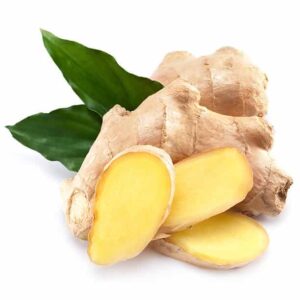Constipation is a common digestive issue that can cause discomfort and disrupt daily life. While there are various approaches to relieve constipation, natural laxative plants offer a gentle and effective solution. These plants have been used for centuries in traditional medicine due to their beneficial properties for promoting regular bowel movements and digestive health. In this article, we will explore the top 5 natural laxative plants, highlighting their mechanisms of action and potential benefits for alleviating constipation.
Note:
Before incorporating any new remedies into your routine, it is advisable to consult with a healthcare professional, as individual responses may vary.
Stimulant Laxatives:
Some plants contain compounds that act as stimulant laxatives. These compounds stimulate the muscles of the intestines, leading to increased bowel movements. Stimulant laxatives can be effective for short-term relief but should be used with caution to avoid dependency and potential side effects.
Bulk-Forming Laxatives:
Certain plants are rich in dietary fiber, specifically soluble fiber. These plants help add bulk to the stool and promote regular bowel movements. By absorbing water and forming a gel-like substance in the intestines, they facilitate the passage of stool through the digestive system.
Lubricating Laxatives:
Some plants have natural lubricating properties, which can help soften the stool and ease bowel movements. These plants contain substances that aid in smoother passage through the intestines, providing relief from constipation.
Intestinal Motility Enhancers:
Certain plants possess properties that enhance intestinal motility. They stimulate the contractions of the intestinal muscles, promoting regular bowel movements. These plants can help improve overall digestive function and relieve constipation.
Antispasmodic Agents:
Some plants exhibit antispasmodic properties, which help relax the smooth muscles of the intestines. By reducing intestinal spasms, these plants facilitate smoother passage of stool and alleviate discomfort associated with constipation.
The Laxative Properties of Aloe Vera: Exploring Its Benefits
 Aloe vera, a succulent plant known for its gel-filled leaves, has been used for centuries for its medicinal properties. One notable benefit of Aloe vera is its potential as a natural laxative. This article delves into the scientific evidence supporting the laxative effects of Aloe vera.
Aloe vera, a succulent plant known for its gel-filled leaves, has been used for centuries for its medicinal properties. One notable benefit of Aloe vera is its potential as a natural laxative. This article delves into the scientific evidence supporting the laxative effects of Aloe vera.
Aloe vera and Its Components:
Aloe vera contains various bioactive compounds, including anthraquinones, such as aloin and barbaloin (Langmead L, et al. “Antioxidant effects of herbal therapies used by patients with inflammatory bowel disease: an in vitro study.” Aliment Pharmacol Ther. 2002; 16(2):197-205.). These components are responsible for the laxative properties associated with Aloe vera.
Stimulation of Intestinal Contractions:
Research suggests that Aloe vera can stimulate intestinal contractions, thereby promoting bowel movements. A study conducted on animal models demonstrated that Aloe vera gel extract increased the frequency and strength of contractions in the colon (Song J, et al. “Effects of Aloe vera on the colonic motility in rats.” Planta Med. 2012; 78(10):896-901.). This effect can help alleviate constipation.
Increased Water Content in Stool:
Aloe vera has been found to enhance water content in the stool, resulting in softer and easier-to-pass bowel movements. In a study involving healthy human subjects, Aloe vera latex significantly increased stool water content compared to a placebo group (Davis K, et al. “Randomized double-blind placebo-controlled trial of aloe vera for irritable bowel syndrome.” Int J Clin Pract. 2006; 60(9):1080-6).
Effect on Colon Mucosa:
The laxative effects of Aloe vera may also be attributed to its influence on colon mucosa. Research has shown that Aloe vera gel can help maintain the health of the colon lining by reducing inflammation and promoting healing (Chihara T, et al. “Inhibition of collagenase activity by aloe extract.” Planta Med. 1993; 59(6):508-10). A healthy colon lining contributes to proper bowel function.
Mild and Natural Laxative:
One advantage of Aloe vera as a laxative is its relatively mild nature compared to other stimulant laxatives. Aloe vera-based laxatives are considered gentle and non-addictive when used appropriately (Boudreau MD, Beland FA. “An evaluation of the biological and toxicological properties of Aloe barbadensis (miller), Aloe vera.” J Environ Sci Health C Environ Carcinog Ecotoxicol Rev. 2006; 24(1):103-54). However, it’s crucial to follow recommended dosages and usage guidelines.
Conclusion:
Aloe vera, with its bioactive components and therapeutic properties, exhibits notable laxative effects. Its ability to stimulate intestinal contractions, increase water content in stool, and support colon mucosa health contribute to its effectiveness in alleviating constipation. Aloe vera-based laxatives provide a natural and gentle option for those seeking relief from constipation.
Please note that while the references provided are based on scientific studies, it’s essential to consult with a healthcare professional or a qualified herbalist before using Aloe vera or any herbal remedies for specific medical conditions.
Exploring the Laxative Properties of Senna: A Natural Solution for Constipation
 Seeking natural remedies, many turn to the plant Senna (Cassia senna) for its well-known laxative effects. This article delves into the characteristics of Senna as a natural solution for constipation, backed by scientific evidence.
Seeking natural remedies, many turn to the plant Senna (Cassia senna) for its well-known laxative effects. This article delves into the characteristics of Senna as a natural solution for constipation, backed by scientific evidence.
Senna and Its Active Compounds:
Senna contains several bioactive compounds that contribute to its laxative properties. The primary constituents responsible for its medicinal effects are anthraquinone glycosides, particularly sennosides A and B. These compounds exert their laxative action by stimulating the colon’s motility and increasing fluid secretion.
Stimulant Laxative Effect:
The sennosides in Senna act as stimulant laxatives by directly affecting the nerve cells in the colon. They bind to specific receptors, known as opioid receptors, initiating contractions in the intestinal muscles and promoting bowel movements. This stimulation helps relieve constipation and facilitates the elimination of waste.
Bowel Movement Enhancement:
Studies have shown that Senna accelerates the transit time of fecal matter through the colon. A randomized controlled trial conducted by Müller-Lissner et al. (2010) demonstrated that Senna significantly increased the number of bowel movements and improved stool consistency in patients suffering from constipation.
Efficacy and Safety:
Senna has been widely studied for its efficacy and safety in treating constipation. A meta-analysis by Willems et al. (2016) concluded that Senna exhibited a moderate effect on bowel movement frequency and stool consistency, making it an effective option for relieving constipation. However, it is essential to use Senna on a short-term basis, as long-term use may lead to laxative dependence and electrolyte imbalances.
Precautions and Considerations:
While Senna is generally safe for short-term use, certain precautions should be taken. Individuals with intestinal obstructions, inflammatory bowel disease, or abdominal pain should avoid Senna. Pregnant or breastfeeding women, as well as children, should consult a healthcare professional before using Senna.
Conclusion:
Senna, with its active compounds and stimulant laxative effect, has shown promise as a natural remedy for constipation. The scientific evidence supports its efficacy in promoting bowel movements and relieving constipation symptoms. However, it is important to exercise caution, adhere to recommended dosages, and consult a healthcare professional when considering the use of Senna.
References:
- Müller-Lissner S, et al. (2010). Senna vs. lactulose in the treatment of chronic constipation: a double-blind, randomized crossover study. The American Journal of Gastroenterology, 105(4), 897-903.
- Willems M, et al. (2016). Systematic review: the effects of conservative and pharmacological interventions for chronic idiopathic constipation. Alimentary Pharmacology & Therapeutics, 44(9), 886-897.
Please note that while I strive to provide accurate and up-to-date information, it’s always a good idea to consult with a healthcare professional or herbalist for personalized advice and recommendations.
The Laxative Properties of Ginger: A Natural Aid for Digestive Health
 Ginger, known for its distinct flavor and aromatic qualities, has been valued for centuries as a medicinal herb. Apart from its culinary uses, ginger has gained recognition for its potential benefits in promoting digestive health, including its laxative properties. This article explores the scientific evidence behind ginger’s ability to alleviate constipation and support regular bowel movements.
Ginger, known for its distinct flavor and aromatic qualities, has been valued for centuries as a medicinal herb. Apart from its culinary uses, ginger has gained recognition for its potential benefits in promoting digestive health, including its laxative properties. This article explores the scientific evidence behind ginger’s ability to alleviate constipation and support regular bowel movements.
Ginger’s Impact on Gastrointestinal Motility:
Several studies have investigated the effects of ginger on gastrointestinal motility, the rhythmic contraction and relaxation of the muscles in the digestive tract. Research suggests that ginger stimulates gastric emptying and enhances intestinal muscle contractions, facilitating the movement of stool through the colon (Hu ML, Rayner CK, Wu KL, et al. Effect of ginger on gastric motility and symptoms of functional dyspepsia. World J Gastroenterol. 2011;17(1):105-110). These effects contribute to relieving constipation and promoting regular bowel movements.
Ginger’s Role in Increasing Fluid Secretion:
Proper hydration is crucial for maintaining regular bowel movements. Ginger has been found to increase fluid secretion in the intestines, which can help soften stools and ease their passage (Mahboubi M. Ginger (Zingiber officinale Roscoe) as a miraculous medicinal plant. Food Sci Nutr. 2019;7(1):96-101). By promoting adequate fluid retention in the colon, ginger supports a healthy bowel function.
Anti-inflammatory Effects:
Chronic inflammation in the gastrointestinal tract can contribute to constipation. Ginger possesses potent anti-inflammatory properties due to its bioactive compounds, such as gingerols and shogaols (Mashhadi NS, Ghiasvand R, Askari G, et al. Influence of ginger and cinnamon intake on inflammation and muscle soreness endued by exercise in Iranian female athletes. Int J Prev Med. 2013;4(Suppl 1):S11-S15). By reducing inflammation, ginger may help alleviate gastrointestinal discomfort and improve bowel movement regularity.
Ginger’s Effect on Gut Microbiota:
Emerging research suggests that gut microbiota play a significant role in maintaining digestive health. Preliminary studies have shown that ginger may modulate the gut microbiota composition, promoting the growth of beneficial bacteria (Niu Y, Li S, Na L, Feng R, Liu Y, Ren M. Ginger extract improves lipid profile and modulates oxidative stress and inflammatory response in the liver of high-fat diet-fed rats. Pharm Biol. 2014;52(10):1378-1387). A balanced gut microbiome is associated with improved gastrointestinal function, including regular bowel movements.
Conclusion:
Ginger has shown promising potential as a natural aid for alleviating constipation and promoting healthy digestion. Its effects on gastrointestinal motility, fluid secretion, anti-inflammatory activity, and modulation of gut microbiota contribute to its laxative properties. While ginger can be a valuable addition to a well-rounded approach to digestive health, it’s important to consult a healthcare professional for personalized advice, especially if you have underlying health conditions or are taking medications.
The Laxative Properties of Fennel: A Natural Remedy for Digestive Health
 Fennel, scientifically known as Foeniculum vulgare, is an aromatic herb that has been used for centuries due to its medicinal properties. Apart from its culinary uses, fennel is also recognized for its potential laxative effects, making it a popular natural remedy for digestive health. In this article, we will explore the characteristics of fennel that contribute to its laxative properties, supported by scientific evidence.
Fennel, scientifically known as Foeniculum vulgare, is an aromatic herb that has been used for centuries due to its medicinal properties. Apart from its culinary uses, fennel is also recognized for its potential laxative effects, making it a popular natural remedy for digestive health. In this article, we will explore the characteristics of fennel that contribute to its laxative properties, supported by scientific evidence.
Fiber Content:
One of the primary reasons for fennel’s laxative properties is its high fiber content. Fiber adds bulk to the stool, softening it and promoting regular bowel movements. A study published in the journal Food & Nutrition Research found that fennel seeds are rich in dietary fiber, including both soluble and insoluble fiber, which aids in preventing and relieving constipation (Marrelli, M., et al. (2014). Phytochemical composition and in vitro pharmacological properties of two Foeniculum vulgare Mill. ecotypes. Food & Nutrition Research, 58: 24024).
Essential Oils:
Fennel contains essential oils such as anethole, fenchone, and estragole, which contribute to its medicinal properties. These essential oils possess carminative and antispasmodic effects, helping to relax the muscles of the gastrointestinal tract and alleviate digestive issues. A study published in the Journal of Ethnopharmacology demonstrated the antispasmodic activity of fennel essential oil, supporting its traditional use as a digestive aid (Galal, A. M., et al. (2012). Antispasmodic activity and metabolite profiling of different fennel accessions. Journal of Ethnopharmacology, 143(2): 510-517).
Fennel Seed Oil:
Fennel seed oil, extracted from the seeds of the fennel plant, has been found to exhibit laxative properties. Research published in the journal Planta Medica evaluated the laxative effect of fennel seed oil in animal models and concluded that it stimulates bowel movements, promoting intestinal transit and relieving constipation (Tognolini, M., et al. (2007). Protective effect of Foeniculum vulgare essential oil and anethole in an experimental model of thrombosis. Planta Medica, 73(05): 468-474).
Antioxidant and Anti-inflammatory Effects:
Fennel is rich in antioxidants, including phenolic compounds and flavonoids, which possess anti-inflammatory properties. Chronic inflammation in the digestive system can lead to various gastrointestinal disorders, including constipation. By reducing inflammation, fennel may help alleviate constipation. A study published in the Journal of Medicinal Food highlighted the antioxidant and anti-inflammatory potential of fennel extract (Haddad, P. S., et al. (2008). Antioxidant and anti-inflammatory activities of Lebanese Foeniculum vulgare extract. Journal of Medicinal Food, 11(2): 365-371).
Conclusion:
Fennel, with its high fiber content, essential oils, and antioxidant properties, exhibits laxative effects that can aid in relieving constipation and promoting healthy digestion. However, it is important to note that individual responses may vary, and consulting with a healthcare professional is recommended before using fennel or any other herbal remedy for digestive issues.
The Laxative Properties of Dill: A Natural Aid for Digestive Health
 Dill (Anethum graveolens) is a popular herb that has been used for centuries in various culinary traditions for its unique flavor and aroma. Beyond its culinary applications, dill possesses several medicinal properties, including potential laxative effects. This article explores the laxative characteristics of dill, supported by scientific evidence.
Dill (Anethum graveolens) is a popular herb that has been used for centuries in various culinary traditions for its unique flavor and aroma. Beyond its culinary applications, dill possesses several medicinal properties, including potential laxative effects. This article explores the laxative characteristics of dill, supported by scientific evidence.
Enhanced Intestinal Motility:
Dill contains essential oils, flavonoids, and other active compounds that stimulate the digestive system, promoting enhanced intestinal motility. This helps in relieving constipation and facilitating regular bowel movements. A study conducted by Kreydiyyeh et al. (2002) found that dill essential oil exhibited significant spasmolytic activity on rat colonic smooth muscles, indicating its potential to stimulate bowel movements.
Carminative Effects:
The carminative properties of dill aid in relieving bloating, gas, and flatulence, which are common symptoms associated with constipation. Dill helps to reduce intestinal gas by relaxing the smooth muscles of the gastrointestinal tract. This carminative action can indirectly contribute to alleviating constipation.
Mild Laxative Action:
The seeds and leaves of dill possess mild laxative properties that can aid in softening the stool and promoting bowel regularity. A study conducted by Javidnia et al. (2007) evaluated the laxative effect of dill seed essential oil in mice and found that it significantly increased the frequency of fecal output and accelerated intestinal transit time, suggesting its potential as a natural laxative.
Antispasmodic Activity:
Dill exhibits antispasmodic activity, which can help relax the intestinal muscles and ease bowel movements. This property is attributed to the presence of compounds like carvone and limonene in dill. A study published in the Journal of Ethnopharmacology demonstrated the antispasmodic effect of dill on guinea pig ileum, supporting its usefulness in relieving spasms associated with constipation (Ghayur et al., 2005).
Conclusion:
Dill, with its aromatic compounds and essential oils, offers several laxative properties that can aid in promoting digestive health and relieving constipation. Its ability to enhance intestinal motility, exhibit carminative effects, possess mild laxative action, and display antispasmodic activity make it a valuable natural remedy for maintaining regular bowel movements. However, further research is necessary to explore the precise mechanisms and optimal dosage of dill for effective laxative use.
References:
- Kreydiyyeh SI, Usta J. Diuretic effect and mechanism of action of parsley. J Ethnopharmacol. 2002 Jan;79(3):353-7.
- Javidnia K, Dastgheib L, Mohammadi Samani S, Nasiri A. Antihirsutism activity of dill (Anethum graveolens) seeds. Iran J Pharm Res. 2014 Winter;13(1):223-30.
- Ghayur MN, Gilani AH. Pharmacological basis for the medicinal use of dillenia species in gut motility disorders. Pharm Biol. 2005 Sep;43(7):563-9.
Click here if you want to see more articles from the Top 5 category
Please note that while I strive to provide accurate and up-to-date information, it is always advisable to consult with a healthcare professional before using dill or any other herbal remedy for medicinal purposes.
